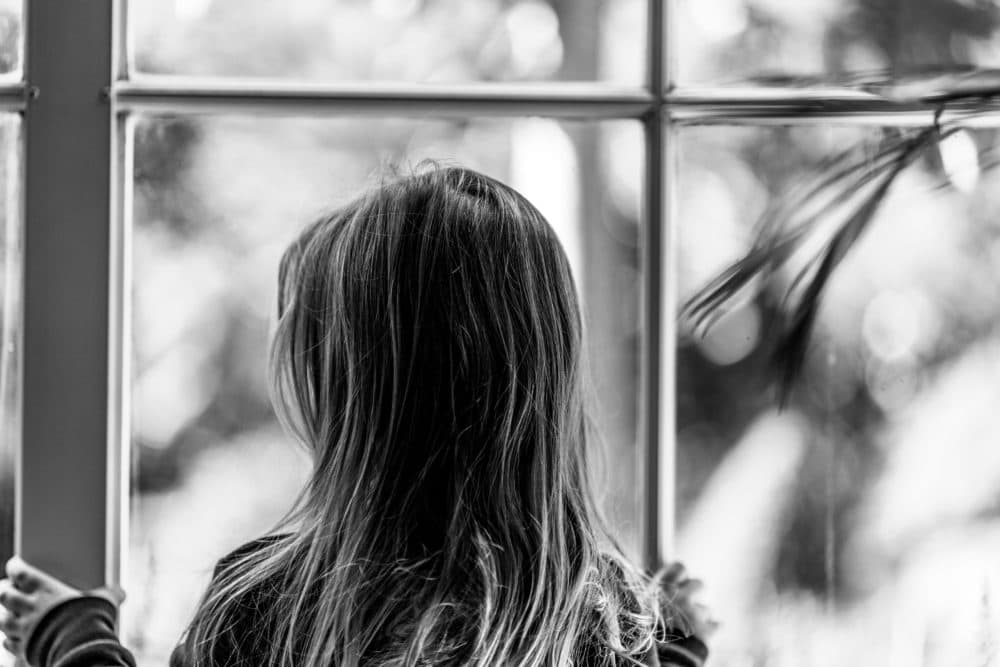Advertisement
Commentary
Let Your Teens Stay Up All Night, And Other Pandemic Parenting Advice

Our children are grieving. They might not look like they're suffering. Our teen daughters and sons are online playing video games with their friends, something they did before the pandemic. But now they've shifted to nocturnal hours. Play all night, sleep all day. They seem to be redefining normalcy. The sun and flowers remind them of friends and sports practices but their survival depends on a redefinition of reality. Video games are familiar and can accommodate their new normal.
Forget major milestones like proms, graduation, parties. The virtual substitutes, no matter how well-meaning, aren't the same. Teens have been robbed of normative landmarks. If they can see this moment as historical, even meaningful, they will thrive. But if their lives have been organized around these major events, they might suffer.
Our younger children, those in elementary and middle school, also appear to be rising to the challenges of this historical and stressful time. They are generally doing what's expected of them: attending Zoom classrooms, finishing homework and, in some cases, exercising.
However, if you pay attention you might notice that their play focuses on themes of parental safety, hiding (hide and seek), and magical thinking about saving elderly relatives in nursing homes or even, beloved teachers. Many of our children are frightened but acting fine. They are not. Their lives have been upended. No routine school, no regular friend connection, mom and dad (who might be fighting due to the relentlessness of their connection) are less available even if they're always home.
Many of our children are frightened but are acting fine. They are not.
Our college students face a different struggle. They are emerging adults, building their sense of who they are, independent of their families, while figuring out what is important to them. If they imagine themselves as artists, they see galleries closed. If they imagine themselves as academics, they wonder if they would be able to do research during this pandemic. Medical students and nursing students, along with the many “para” professionals, are recognizing their worth. Being a computer geek — programmer, engineer, mobile application developer — may have more or less meaning right now. What will this world value after COVID 19? They may wonder, How can I ensure my own well-being, the well-being of my eventual family, and others who are less privileged than me? What do I value and what does that mean about me? After this, will there be a market for medical spas? Health clubs? Bars? Artists or actors?
What I have noticed in my therapy practice is that adolescents and adults who felt “outside” the rest of society are thriving. Finally, the world is experiencing life as they do — isolated, lonely, sad. Before the pandemic, they felt the weight of loneliness and chose to embrace it. Social isolation now allows them to feel they have company.
Advertisement
[A]dolescents and adults who felt 'outside' the rest of society are thriving.
But very social kids are suffering, wondering if they're being left out. Popularity is harder to gauge in isolation -- perhaps people are getting together on Zoom talks or in Netflix parties. FaceTime and text are helping these kids to feel connected. But when social sites go down due to heavy demand, as Instagram and Snapchat did recently, kids feel lost, disconnected and left out. If these kids have strong family support, they may be able to navigate their personal and relational roles. If they feel disconnected from their family, they may feel terribly isolated.
A further concern for teens is their elders. Even kids who have not been particularly interested in their grandparents may feel a sense of loss. If my mother’s mother dies in elderly housing, they may wonder, do I have to feel guilty about not wanting to have had a relationship with someone old? Our kids are trying to work out their historical relationships with their parents, grandparents and extended family. Guilt and shame might be mental health issues for kids in this cultural moment.
How can we try to protect our kids?
Understand where your child is in terms of anxiety about the virus. Younger children benefit from structure: Bedtime, wake-up time, meal times, exercise, school work and pleasure should be scheduled. Knowing what comes next is calming.
Allowing older kids to define this moment might be helpful. “The world is too weird now, so I’m going to determine my own environment," they might be thinking. This can be hard for parents. Adults tend to do best with normal sleep and wake cycles. But our teens and college students might actually benefit from living in opposition to our values and expectations.
This moment requires that we all be able to take a deep breath, step back to allow space for reflection and allow our children’s own response to this traumatic event. All of our kids have enough access to media to know that this is overwhelming. They also understand the weight of discontinuing school, social activities and travel. They might argue that that is not important — adults are overreacting. But they know the truth. Don’t engage that argument since it is really a call for help: “Please tell me the world is not ending.” None of us can make any promises but we can absolutely assure our kids that we, as parents and guardians, are making sure we're doing everything we can to keep all of us all safe.
